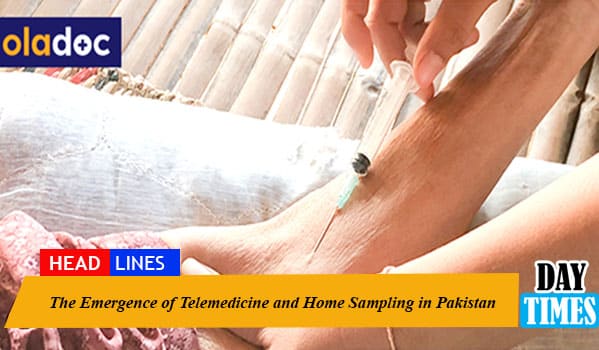With the spread of the coronavirus across the globe, healthcare providers everywhere have had to improve and innovate the techniques they use to serve their communities.
The method that most have adopted is to start incorporating information technology into their services, allowing these healthcare providers to operate from a distance and with greater efficiency. This has led to an increase in telehealth services all over the country and the emergence of entire companies, such as oladoc, that are dedicated to improving the virtual interactions between patients and doctors. Oladoc has already started providing online video consultations with doctors from different specialties such as dermatology, gynecology, internal medicine etc.
The importance of Telehealth
Even before the global pandemic, it was clear that Pakistan was in desperate need of an increase in healthcare availability and infrastructure. Telehealth and e-health have allowed the country to make up for these gaps with minimum investment. These services, if properly managed, can extend the quality healthcare normally only provided in cities, to the rural parts of the country as well.
The Asia-Pacific Front Line of Healthcare Report 2020 has predicted a large increase in telehealth and ehealth across the region, mainly due to the shifting needs of the people. We are already seeing this increase in Pakistan, with services such as Chughtai Labs home sample collection seeing a massive spike in growth as more and more people have become comfortable trusting such services. These services have also greatly reduced the amount of hassle and time investment that were previously required to get any kind of medical help. Now people don’t need to leave their houses and wait in long lines, since they can receive the exact same service or treatment from the comfort of their own bedrooms.
The obstacles
Although it should be noted that e-health/telemedicine will not be able to completely replace in person interaction with a doctor for the foreseeable future. There are still many conditions and treatments that require a face to face meeting between patient and doctor. Telehealth/e-health will be able to reduce the load on these doctors however, as all those consultations that can be conducted over the phone or video call, now will be. This will greatly assist Pakistan’s already overburdened healthcare system by making sure doctors allocate their time as efficiently as possible and patients get the care they need, when they need it.
The Data and Policy
One of the best ways to properly gauge online interest in a certain topic is to look at the google data regarding that topic. So we went through the google data over the last five years and found that there has been a sharp increase in interest in online healthcare that will likely stabilise to a higher point than before, as shown below:
Although private institutions and the general public are moving towards telemedicine/ehealth, the government is yet to pass any kind of laws or regulations for the industry. If this industry is going to reach its full potential, the Pakistani government will have to align itself with this transition or at the very least legally support and regulate the companies that are making such a transition possible. This is especially important when it comes to the public hospitals all over the country, these institutions need to be able to compete with private hospitals, so it is absolutely essential that they also adopt new technologies at the same rate as private hospitals.
You can follow us on Twitter, add and like us to your circle on Facebook page, keep yourself updated on Linkedin and Instagram for all the latest from Technology, Entertainment, Sports, Gadgets, Latest Government Jobs, Cooking Recipes, Health and Beauty, Autos and Vehicles and Much More.





